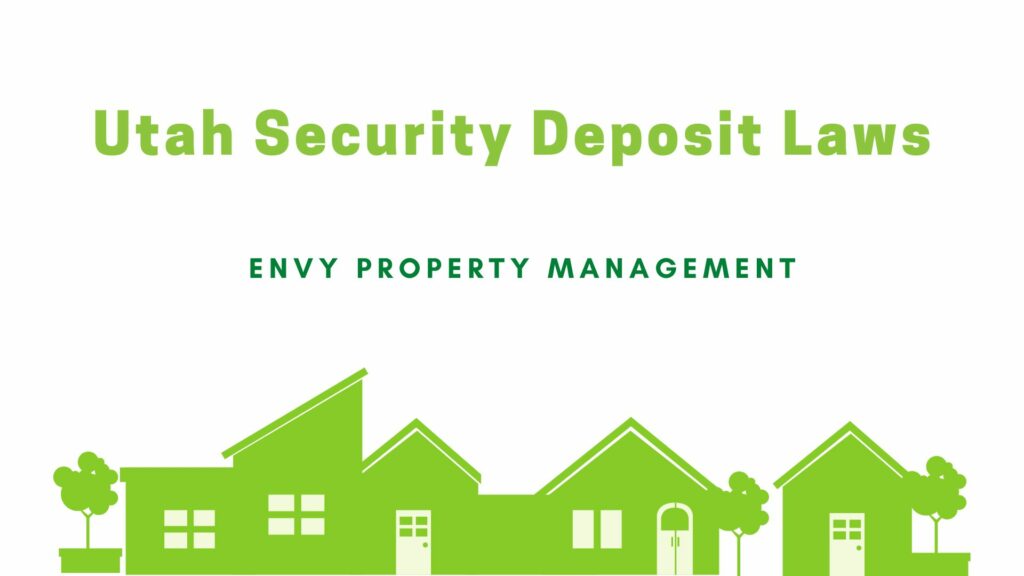The Fair Housing Act applies not only to landlords, but also to mortgage lenders, insurance agencies and realtors.
This article covers important information you need to know about the Fair Housing Act as a Utah landlord to avoid legal issues.
What Is Fair Housing?
Fair Housing laws are the legal requirement for all housing providers to afford an equal and fair opportunity to individuals looking for housing without them facing housing discrimination. Such individuals include buyers, renters and those looking for mortgage financing.
As a Utah housing provider, for instance, you have an obligation to treat prospective tenants without housing discrimination in an equal and fair manner based on certain protected classes and uphold their fair housing rights.
What is the Federal Fair Housing Act?
The Federal Fair Housing Act was enacted to stamp out discrimination practices in housing matters.
Passed in 1968, the Act prohibited housing discrimination in the financing, sale and rental of housing based on race, national origin, color, and religion.
The act was also amended multiple times along the way to rope in more protected classes. In 1974 and 1988, the act was amended to include sex, disability and familial status as protected classes, respectively.

Essentially, this brought the number of protected classes under the Federal Fair Housing Act to seven. That is, race, color, religion, national origin, sex, familial status, and disability.
What Government Agency Oversees Fair Housing in Utah?
In Utah, the government agency that handles housing discrimination cases is the Utah Labor Commissions Antidiscrimination and Labor Division. Individuals who believe they’ve been discriminated against are required to file their complaints online with the state department.
The agency conducts investigations and ascertains whether the discrimination allegations are justified or not. If justified, the tenant will have the option to pursue civil litigation against the landlord.
What are some examples of discriminatory practices under the Fair Housing Act?
As a housing provider, the following are discriminatory practices that you need to avoid when renting out your Utah property:
- Discriminating against a tenant due to their race. An example of discrimination would be excluding black people from applying to rent your property in your rental advertisement.
- Discriminating against a tenant due to their religion. It’s illegal for you to include the following statement in your rental ad: “Suitable for Christians.” A prospective tenant who isn’t a Christian might feel discriminated against based on their religious beliefs, or lack thereof.
- Showing preferential treatment to tenants based on their nationality. One component of nationality is language. Don’t ask a prospective tenant, for instance, where they’re originally from.
- Using sex as a qualifying standard when it comes to renting out your property. Gender stereotyping is also a form of discrimination when it comes to renting. Regardless of gender identity, you need to afford everyone an equal opportunity when it comes to renting out your property.
- Using familial status as a qualifying standard when renting out your Utah home. Denying a prospect the opportunity to rent your property based on the number of children they have is discriminatory.
- Refusing to rent to a tenant based on their disability. Besides not discriminating against disabled people, the Fair Housing Act also requires you provide reasonable accommodation and reasonable modification. This may include letting a assistance animal like emotional support animals or a service animal to live on premises.

We suggest also familiarizing yourself with landlord-tenant laws as a Utah landlord.
Does Utah State Law Include Extra Protections?
Yes, it does! Utah law has three extra state-level protections based on income source, gender identity and sexual orientation. On sexual orientation, for instance, you can’t qualify a tenant based on whether they are straight, gay, lesbian, bisexual, transgender or queer.
What are some exemptions to the Fair Housing Act?
The Fair Housing Act isn’t without exemptions. The exemptions are as follows.
- Single-family homes. As long as the owner doesn’t own more than 3 homes at any one given time. However, the property owner needs to advertise the investment property on their own and not use discriminatory statements in the rental ad.
- Owner-occupied homes. The act also doesn’t apply to rental homes where the owner lives in one of the units. The dwelling, however, needs to have four or fewer units.
- Housing for Older Persons. Homes designed for the elderly are exempt from the Fair Housing Act if they’re intended and solely occupied by individuals older than 55.
- Private clubs. Private clubs are allowed to deny housing to individuals who don’t meet their membership requirements.
- Religious organizations. Religious organizations are allowed to provide membership only to members that belong to their religion.
How Do Landlords Need to Treat Tenants with Disabilities?
Both the Fair Housing Act and the Americans with Disabilities Act (ADA) protect a disabled person from housing discrimination.

The Fair Housing Act considers the following to be disabilities:
- Alcoholism
- Intellectual disabilities
- Mobility impairments
- Hearing impairments
- Visual impairments
- HIV/AIDS
- Drug addiction
- Anything that limits a major life activity
How Can A Utah Landlord Ensure Fair Housing?
The following are some things you need to do to avoid potential discrimination claims as a landlord:
- Use non-discriminatory language when advertising your rental unit.
- Avoid asking screening questions that touch on a tenant’s protected class.
- Charge prospective tenants a consistent rental price.
- Make timely repairs and maintenance for all residents regardless of their protected class.
- Provide disabled residents with reasonable accommodations and modifications.
We suggest using standard practices to avoid discriminating against prospective tenants or renters. If you ask one tenant for a security deposit, ask all tenants for one in the lease agreements. Tenant Screening procedures also need to be standardized.
Bottom Line: The Fair Housing Act in Utah
As Utah property owners, it’s essential to know and understand the Fair Housing Act well. This way, you’re more likely to attract a large pool of renters and have tenants renew their leases. What’s more is you can avoid any lawsuits.
If you have more questions about the Fair Housing Act or need expert help in managing your rental property, Envy Property Management can help. We’re a quality Northern Utah property management company dedicated to helping landlords succeed in their investments. Contact us today by dialing (801) 337-4337.


